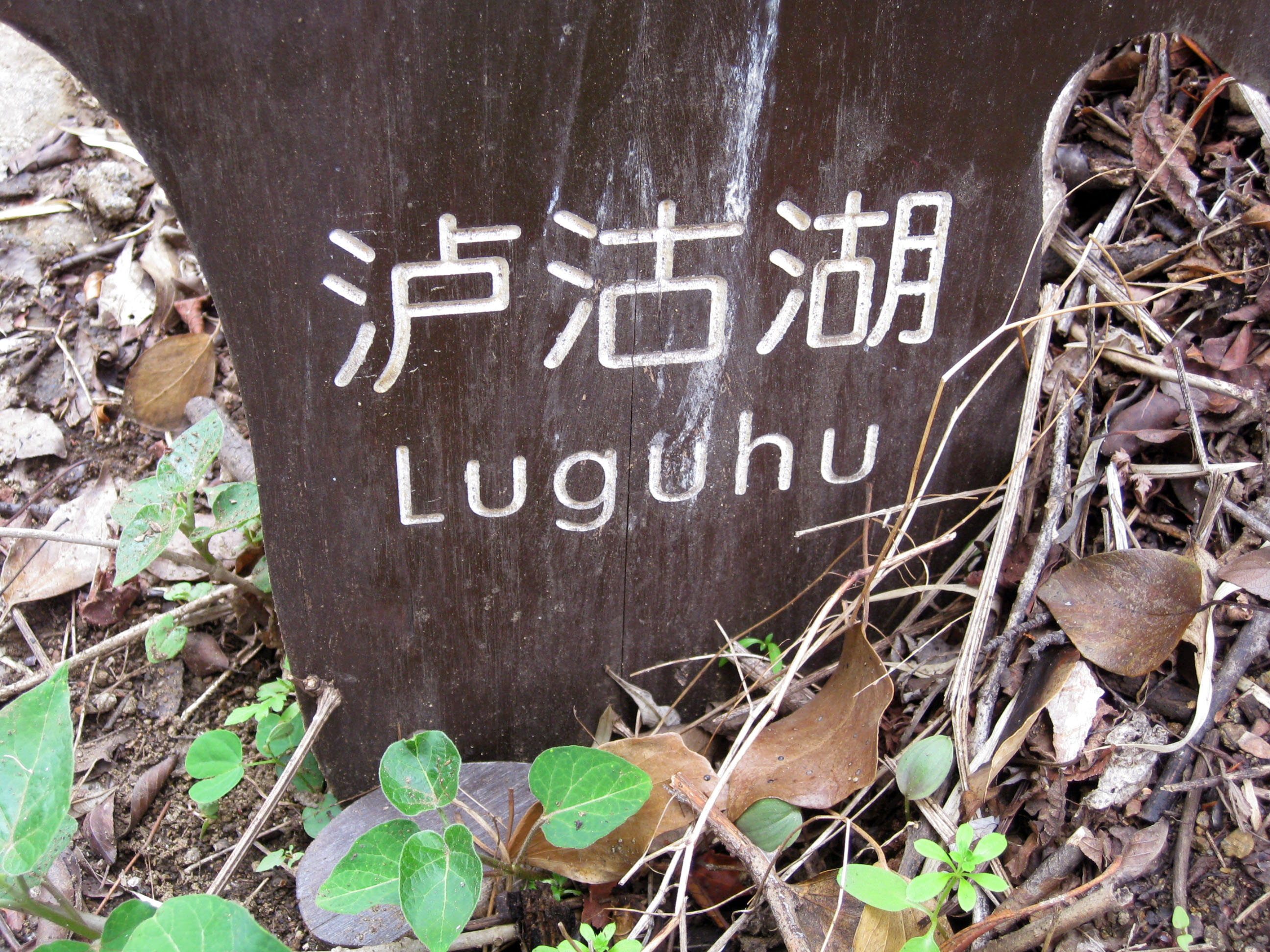
Leaving Lijang Gu Cheng (Lijiang Old Town) and a 7-hour bumpy bus ride after, we arrived at Lugu Hu (Lugu Lake). Lugu Lake was not like what everyone had raved about. Translucent blue waters and clear cloudless skies? Neither of these was present. What we were treated to instead were dark waters, which only reflected the state of the skies – gloomy, grey and cloudy. We stayed for two days (not by choice, rather because we could not get a seat on the next day’s bus) walking around doing nothing much. We had wanted to cycle around the lake, but changed our minds when we found out that not only was the lake’s circumference 53 kilometres, the route was an undulating tarred road we had to share with vehicles that passed through the area. That said, the two days spent at Lugu Lake were no less fulfilling and enjoyable for a couple of reasons – the company and the mini history lesson I received.

Lugu Lake is located in the North West region of Yunnan Province. The villages surrounding the lake are home to various ethnic minorities, including the Mosuo people (some 20,000 of them stay in this area). Now, one of the most fascinating aspects about the Mosuo people is that they are probably the only (or at least one of the very few) matriarchal societies that still exist in the entire world.
A bit of a history and culture lesson:
The Matriarchal Society
In Mosuo society, children are under the custody of their mothers, take their mothers’ surnames, and live in their mother’s household. One woman, the “grandmother”, though not necessarily the oldest of her generation, but the strongest, will become the head of the household. In short, the women in the family run the show.
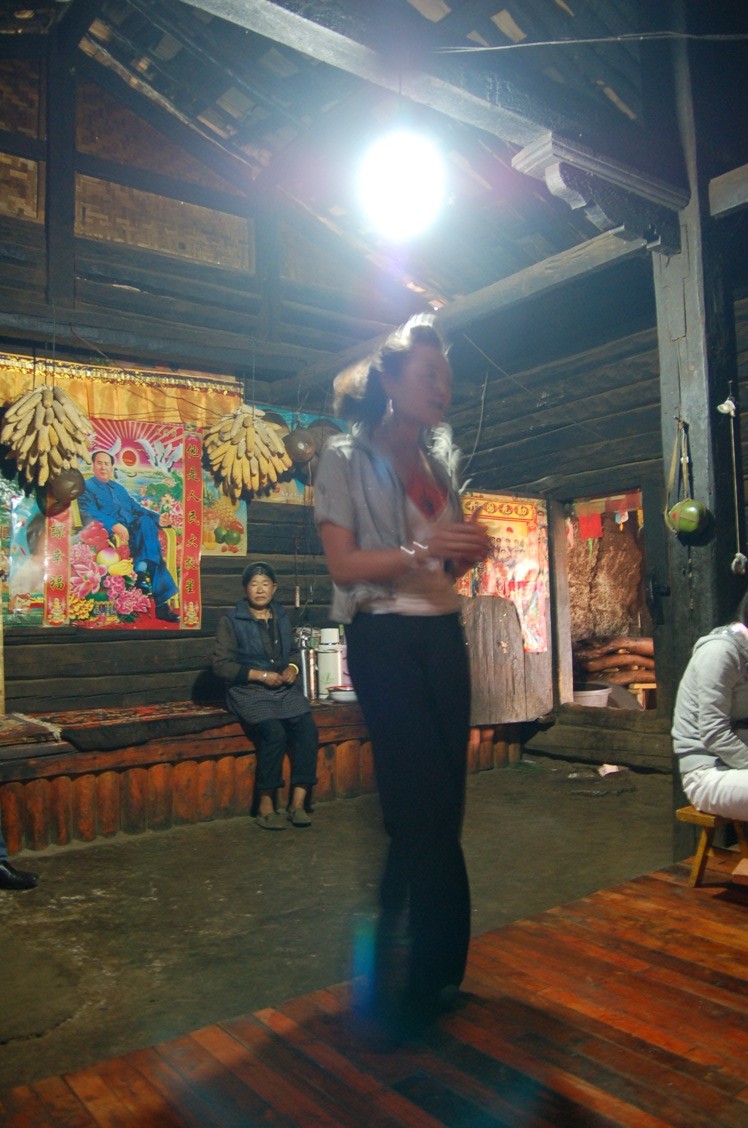
We went to a local’s house. This lady introduced herself as “the future head of the household”
So what then do the men do? To quote what a Mosuo man, whom we met who told us stories on the Mosuo culture, said:
“In the Mosuo culture, it is the women’s world, but it’s the men’s paradise.”
Men have no say in the household, but they do have to go out and work, though I’m not too sure what work they have to do. They do not have to manage their children, although they are very much part of their children’s lives. They have no say in their own household, neither do they have a say in their “wives” household. They have no part in the kitchen or in managing finances. Isn’t this then, as the local said, “men’s paradise”?
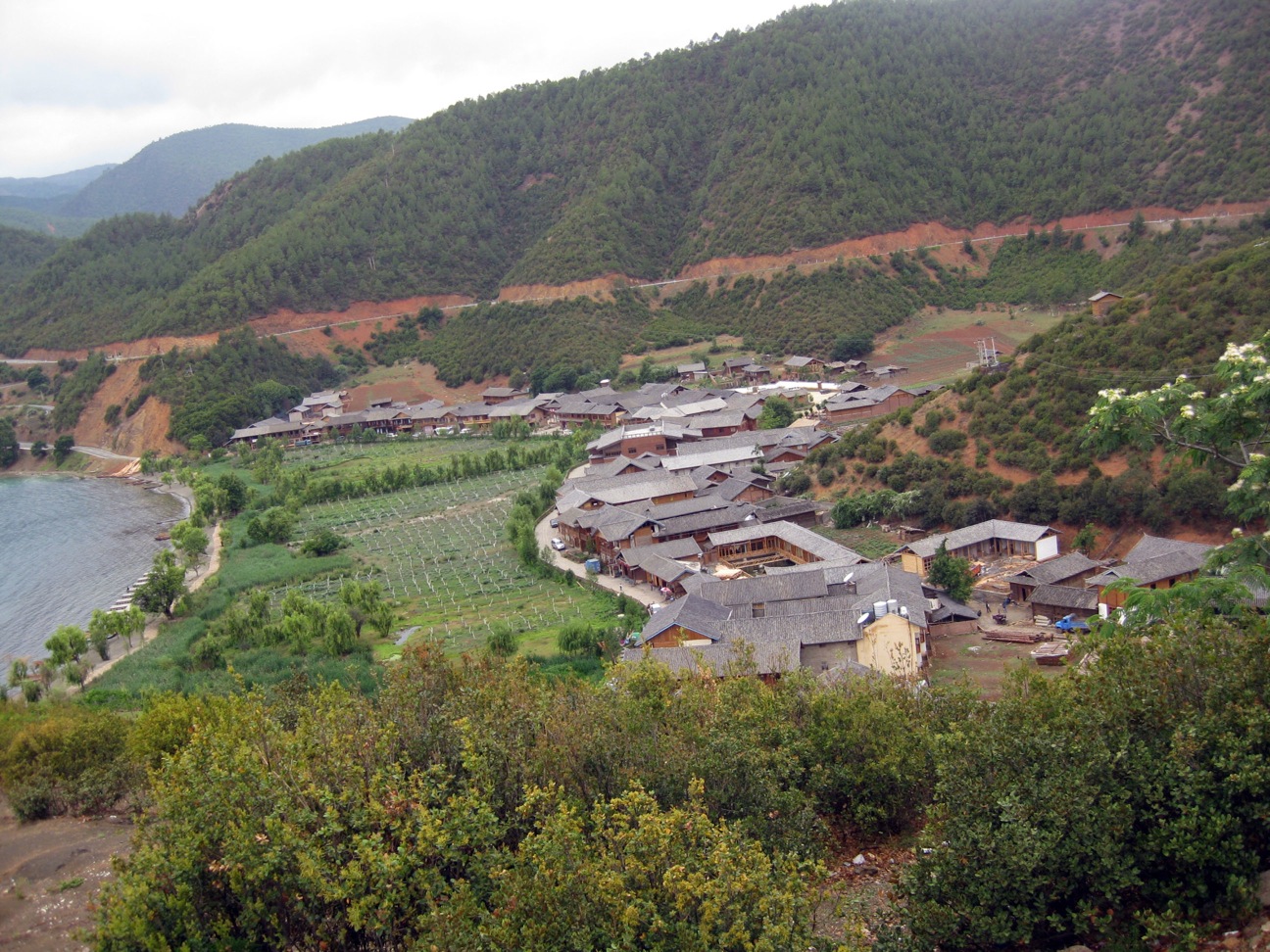
A Mosuo village

A typical Mosuo house
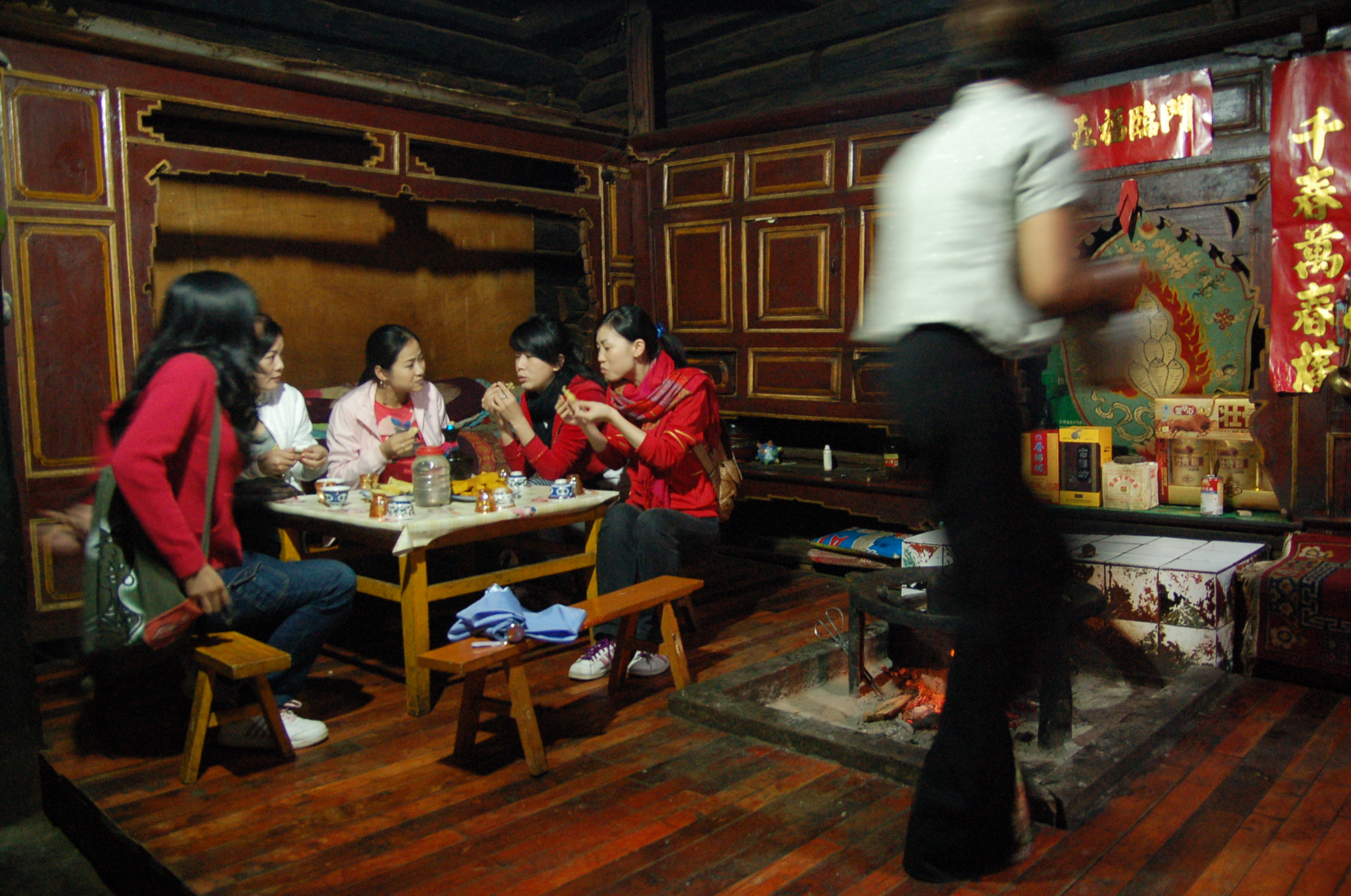
The Interior of a Mosuo Household
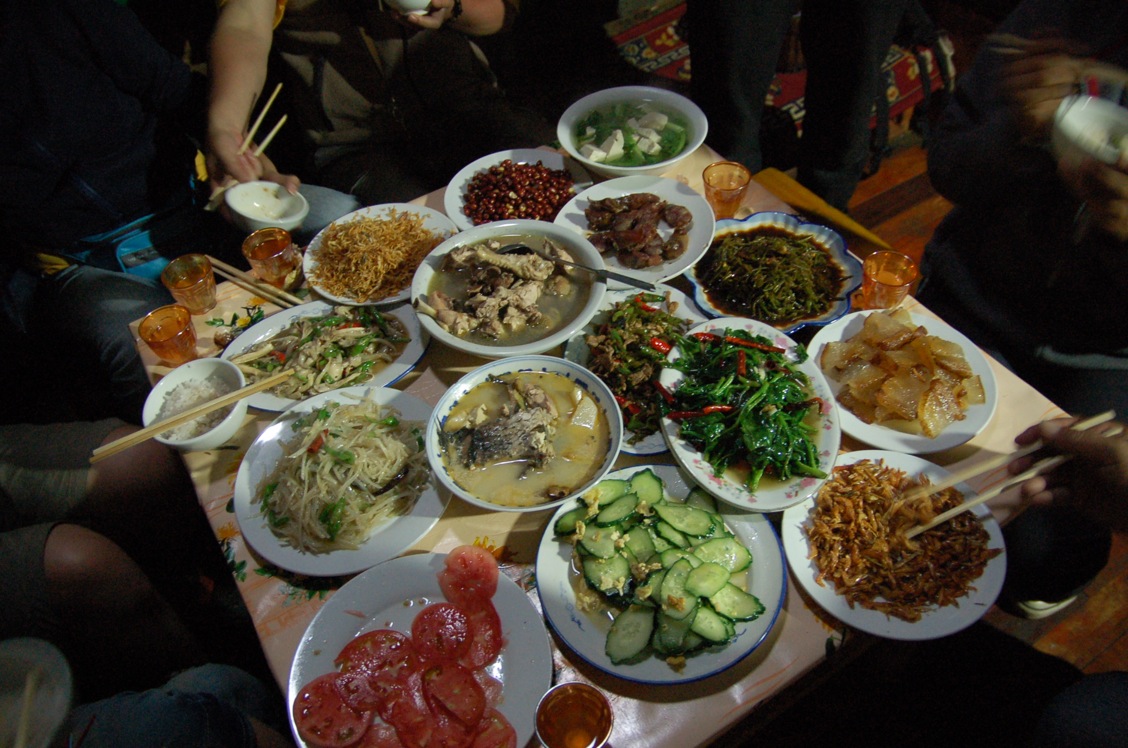
The Walking Marriage
Another interesting fact is that the Mosuo society does not subscribe to a system of marriage that we’re used to – man and woman marry; woman moves into man’s household; man are the head of the household. Instead, the Mosuo man and Mosuo women do not marry and believe in a “walking marriage”.
Picture this: A Mosuo woman at coming-of-age (13 years old) gets her own room. She meets a suitor and if he’s interested, he will go to her room at night, and hang his hat outside the door to indicate that someone is in her room. He must then leave by the morning. This happens every night during their courtship. The day the man is no longer interested in the woman, he will not show up. The day the woman is no longer interested in the man, she closes the door and does not allow him to enter. As simple as that. Hence the term “walking marriage” was borne from the action of the man walking to his partner’s room every night and leaving in the morning.
This may sound like the optimum setting for promiscuity, but in actual fact, apparently some 90% or so Mosuo people stay faithful to their partners once their relationship has been stabilised.
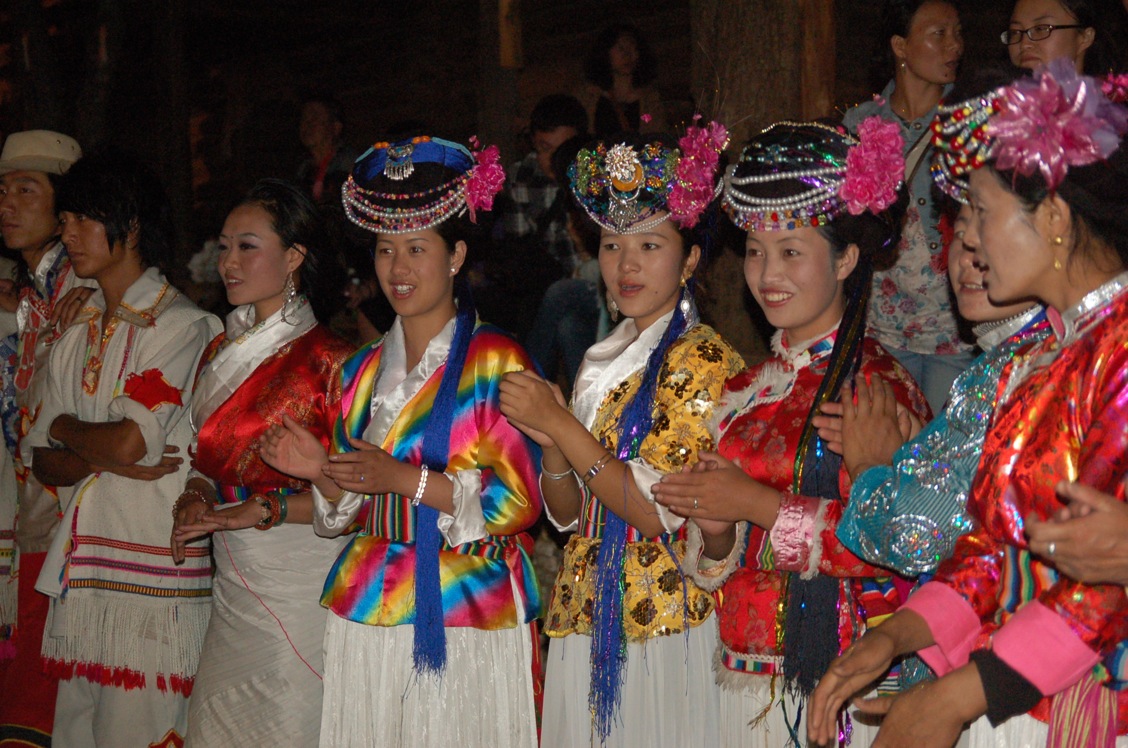
Mosuo women (and one Mosuo man) in their traditional outfits in some touristy dance event we attended.
The History
Historically, the Mosuo people became a matriarchal society as a means of survival. To cut the long story short, every person in the Mosuo household, which typically has 10-20 people (sometimes more), has a role. In the event of a union between man and woman in the Mosuo culture, or rather the stabilising of a relationship since the idea of “marriage” does not exist, neither man nor woman will leave the household. This means that each household will not lose a particular role overnight and will remain strong in numbers in the face of adversity. Many centuries later, this culture remains almost the same.
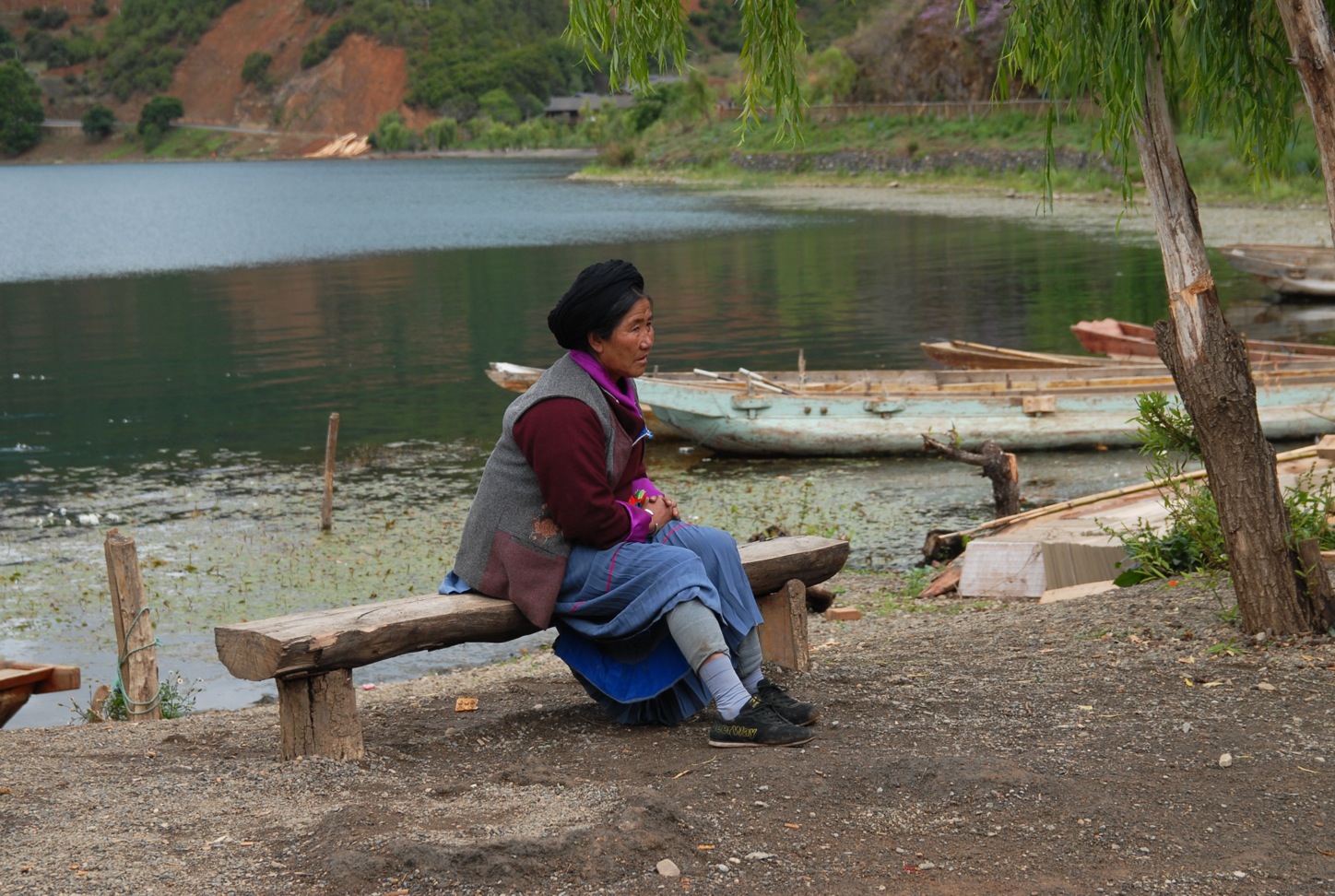
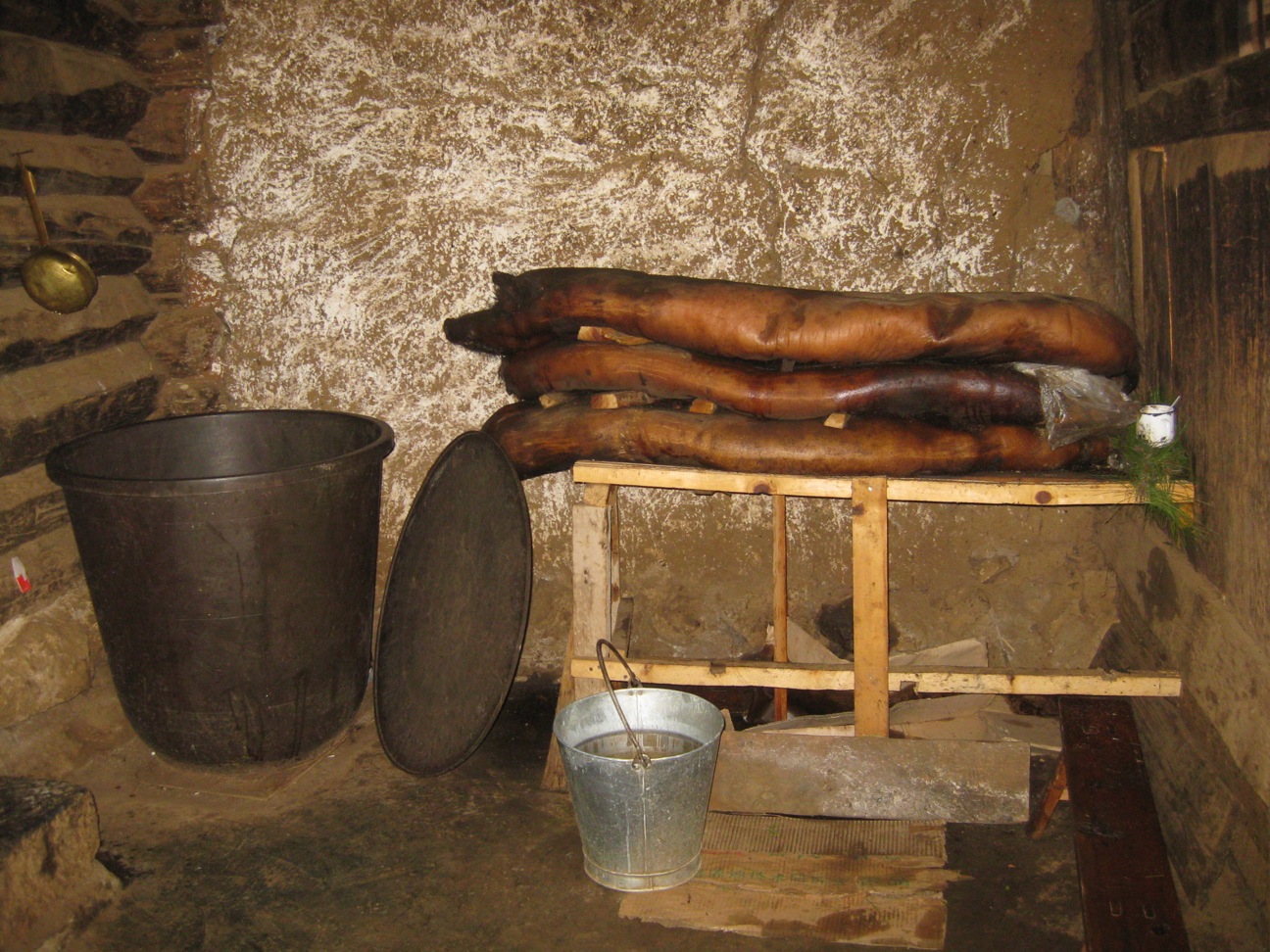
Those are three pigs deboned and preserved for future consumption, a tradition in a Mosuo household
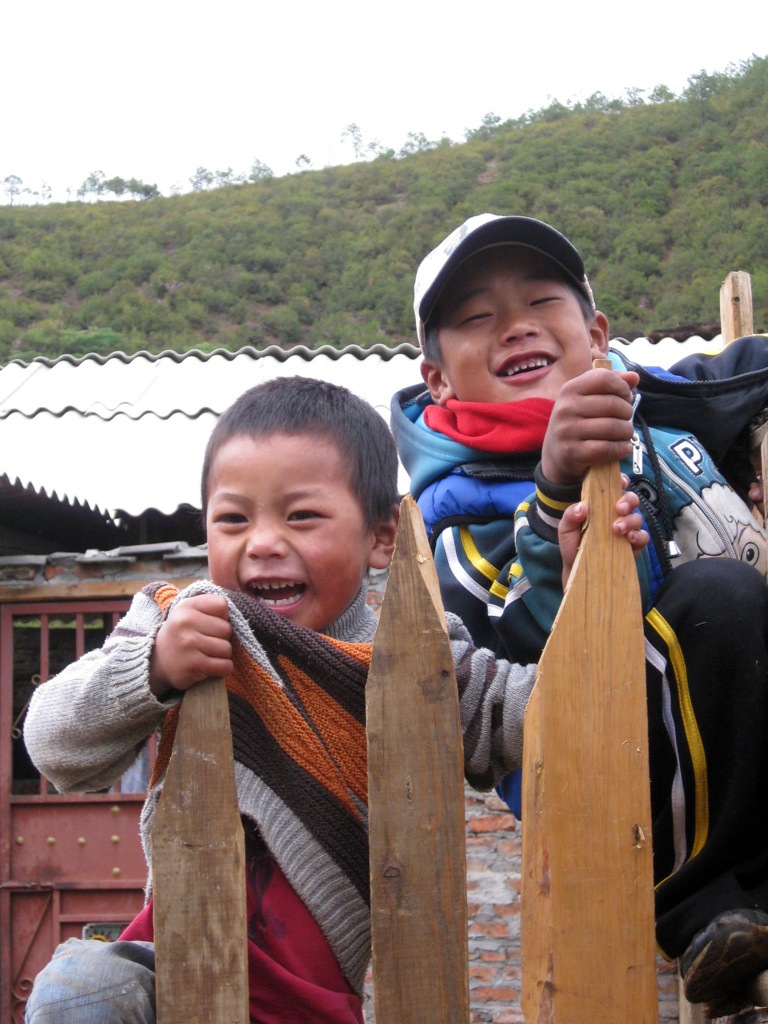
Some local Mosuo kids we met when exploring the area
I had first heard of the Mosuo people in a documentary I had chanced upon on TV some years back and was most intrigued by its culture and the idea of “walking marriage”. Having known of their existence, it was most insightful for me to get a taste of the Mosuo culture, interact with actual Mosuo people and see their stories come to life.
And here’s one ethnic minority group in China slightly better understood. Now another 54 to go.
Photo credits: Thanks to Seng for some of the photos. Your photographic skills do the place more justice.










